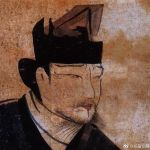Not a member of Pastebin yet?
Sign Up,
it unlocks many cool features!
- Thank you for downloading the Gentlemen of the Hàn translation of Romance of the Three Kingdoms 1994!
- To lighten our workload and getting more episodes available, we've cut the 2nd Arc of the series, "Battle of Red Cliffs", into parts.
- This is part 1, introducing Zhuge Liang, one of The Most Iconic Characters of not just Three Kingdoms, but of Chinese culture in general. A representative of the very East-Asian character archetype of Strategist Genius (https://youtube.com/watch?v=P6C4AEkzb6o), whom gave us many a works of tactical intrigue and mind-games, from literature to even anime and video games!
- Works like Legend of Galactic Heroes, Heroic Legend of Arslan, Suikoden series and Code Geass just to name a few obvious examples would not exist as they are without the many tactics of Zhuge Liang
- We hope you enjoy the translation. If there are any issues you have, don't be afraid to comment (within reason and kindness, of course. Our Discord is available here: https://discord.gg/b45QuBGfS9.
- As before, please read our previous Foreword for extra context on the history of this production, the novel, and of the history its based on:
- https://pastebin.com/zTUkUfV8
- HISTORY VS. ROMANTICISM
- While much can said about Zhuge Liang joining with Liu Bei's faction and how much he actually contributed to the battle of Chibi in real-life history, in the name of storytelling it should be considered an understandable stylization on the part of the RoTK novel. But for the context of this show and the novel, there are two less obvious but still notable frictions between the story of RoTK and the real history it's based on; Namely, the refugees of Xinye and the debate with Southern Scholars:
- Much of the events in Xinye are broadly true to history, however in the novel, and therefore show to an extent, Cao Cao's practice of massacring populations (see previous Foreword for further information) as a method of control and intimidation is lessened and under-emphasized.
- This is in spite of it being routine enough that breaking it was actually notable of being recorded in history (see; Cheng Yu's chapter in volume 14 of the Records of Three Kingdoms).
- As the Late Han Dynasty was a time-period rifed with strife and poverty, homeless refugees would've likely migrated around everywhere, so likely much of the population in the south are also people who would've escaped Cao Cao's previous massacres in the northern territories, or at least known of it. Hence why commoners would've run along with Liu Bei.
- An interesting note on the Southern Scholars debate in Episode 30 is that its presented in a way that is arguably more informed by the time RoTK was written in, that is the Ming and Qing dynasties, over the historical reality of the time-period.
- During both the Ming and Qing dynasties, the scholar-bureaucratic system began to devolve into a significant social ill, especially within the Imperial Examination and how it promoted new Scholar-Officials to the government.
- Basically, as time went on, much of reforms of the Imperial Examination led to promoting a considerably more conservative intelligentsia, where the necesarry literary canons and study material shrank to the barest minimum of Confucian literature, while other systems such as the "Eight-legged essay"(八股文) led to further limitation and stagnation of thought. By the time of the Qing Dynasty, many of the assigned tests of the Imperial Examination would've devolved into almost obtuse word-games.
- This is also compounded by many other issues at the time, such as Emperor's rule becoming increasingly despotic even compared to previous dynasties and the flaws of Grand Secretariat/Inner Cabinet(內閣) style of governance, all of which the later Qing Dynasty did little to fix. This eventually all lead to further sociopolitical stratification and decay.
- Much of what Zhuge Liang rants against in the episode are to do with that societal reality RoTK's writer lived in. In fact, many great classic literatures of the time, from Unofficial History of the Scholars/Rulin Waishi to Jinpingmei and Strange Tales from a Chinese Studio all satirized the society and its systems in which they were contemporary to. Many early-modern Chinese thinkers would also become famous for their scathing critique of it all.
- (Also to note: "Scholar-officials" via the Imperial Examination as most people understand it would've only started to exist after the Sui-Tang Dynasties.
- A more "historically authentic" equivalent of the Southern Scholars debate would likely been more about the stratified, landowning gentry clans and their politicking, which was the far more hot-button sociopolitical issue of the later Han dynasty right up until the late Northern and Southern Dynasties).
- Donations
- This is purely a fan effort done for non-commercial purposes. The Romance of the Three Kingdoms is copyrighted by 中国国际电视总公司, which produced the TV series, so we cannot accept any donations.
- These subs are not to be sold and redistributed commercially.
- Final Word
- A lot of care and hard work was prepared for this release. We hope you enjoy the release!
- - ZL181, and Houston R, 汉朝中郎 Gentlemen of the Hàn
Advertisement
Add Comment
Please, Sign In to add comment

